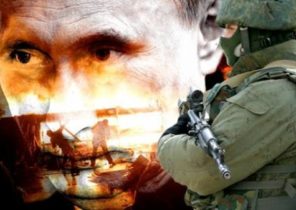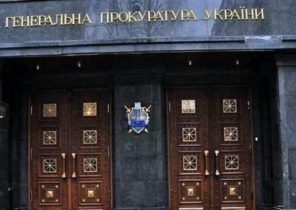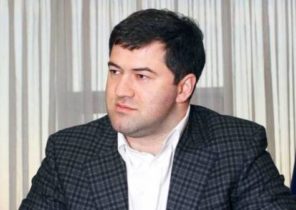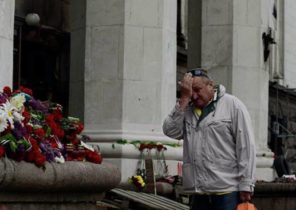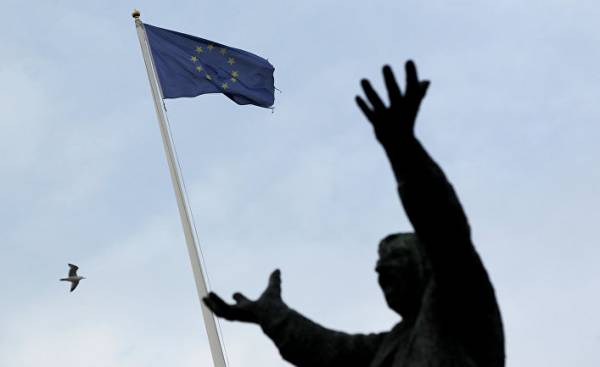
Super-European Estergaard Uffe (Uffe Østergaard) perceives the current state of the EU as a long hangover.
As a historian and an honorary Professor Emeritus Copenhagen business school, it is professionally engaged in the European project and is currently writing a book “Unmerged States of Europe”. In addition, together with former MEP Jens-Peter Bunde (Jens-Peter Bonde) he is working on a book, which contains recommendations for reforming the EU.
Before Uffe Ostergard was just intoxicated by the European spirit and predicted that the national identity of countries participating in the EU will turn into a single. Elections in France last Sunday and the great support received ardent opponent of the EU, marine Le Pen, once again stressed that this prediction is only a dream.
“I love Europe and feel European, but I have to admit that it is obvious that many other Europeans are set up differently,” says Uffe Ostergard:
“The fact that there is no common European identity that makes it difficult for a joint search for solutions to the problems and crises. Instead, conflicts often arise. And we had the opportunity to experience five or six different crises.”
First, the Professor mentions the Euro crisis, which to some extent gave rise to itself. Then about the migration crisis, which, in his opinion, was an expression of the weakness of the EU. This should add Putin’s Russia and Tarnowskie USA lost the interest in European cooperation. The fifth crisis is associated with brexia and farewell to Britain, where, according to the Professor, the EU mainly rested.
When voters were directly asked about the EU, they repeatedly say “no.” Can you somehow explain?
“I think this can be explained by several reasons,” says the historian.
Speech to the EU were coal, steel, and cooperation in such innocent areas as free trade, but has spread to other areas, he explains. Free movement of labor has been particularly revolutionary principle. Initially believed that it affects men aged 20-40 years, but then it included women, there families, there are unemployed, and this led to the fact that illegal immigrants gained social rights.
“Clashes with the population, which was configured more national. And regulation of everything from the EU is felt as a loss of sovereignty. However, many Europeans feel that the cooperation was conducted in those areas which would have to be: much attention was paid to details and important moments — very few,” says Uffe Ostergard.
BLUE BOOK: UFFE OSTERGARD
Was born in 1945.
He studied at the College of Europe in Bruges, a field of keen scientific interest are in large degree questions of national identity.
Worked, in particular, at the University of Aarhus, Danish Institute of international studies, in 2007 became Professor of European and Danish history at Copenhagen business school. Today he is an honorary Professor Emeritus in the School of business.
The author of several books including, “Images of Europe” (1992) og “Europe — identity and policy of identity” (1998).
Optimists were shocked
In the past year, the company experienced an intellectual interest and some confusion in roughly equal proportions, when Estergaard in an interview with Weekendavisen explained that the EU’s response to the crisis, the refugee, should be the protection of its external borders with the help of the “iron curtain”, the four bands of barbed wire, floodlights and guards.
The Professor remains convinced that these measures are necessary. He argues that the fact that after the start of cooperation within the Schengen area, the protection of the external borders of the EU shifted to such relatively weak States, such as Italy and Greece. This partly explains, in his opinion, and the reaction of the electorate in these years:
“The big problem of the EU was that the EU spoke on behalf of the state, not being them. And here I treat voters with more respect. They can very well understand hypocrisy, when the heads of the governments claim that they have a plan, but everyone understands that they are just wishful thinking”.
He calls “shock” for these optimists, like himself, state that they have experienced, realizing how great are, in reality, the distinction between society in Western Europe, and society in Eastern Europe. For example, he indicates that the minimum salary in Bulgaria is less than the child benefit in Denmark. And nearly 50 years lived under communism, is reflected in a skeptical attitude towards Western liberal democracy that we are now seeing in Hungary and Poland.
“Naivety has been great. And to create a real European public failed. We see that whenever the heads of government are meeting in the European Council, they then turn to their national public and say that they were able to win over others,” says Uffe Ostergard.
Do you not believe that Europe will one day develop a common identity?
“No, but I think it will appear in the result of weakness. It appears that Europe will lose its place in the world, and we will perform traditional dances in front of Chinese tourists. It will have to wear national costumes, and studies show that there is nothing more common than national dances and national costumes,” says Uffe Ostergard.
The era of European greatness, you were talking about, began in 1492 and ended in 1945, and the Union extends it artificially. She really came to an end, in your opinion?
“I think the era of European greatness coming to an end. Economic power is not backed by a political one. EU to the fingertips, “the most powerful economy in the world”, but we will be less than the current 500 million people, while the other becomes more”, — says Uffe Ostergard and continues:
“It is perfectly possible to exist. The Italians were defeated in Europe after 1492, but I discovered it not earlier than in a few hundred years. They continued to party at the Venice carnival. And not necessarily that it will have a bad life, but to set moral standards in the world will be difficult. This can be overcome only if you have a certain power.”

